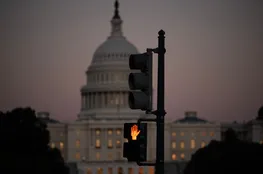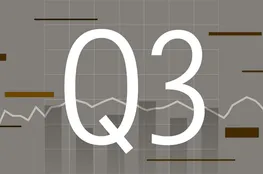Despite the S&P 500's impressive nearly 23% rise this year, 119 stocks in the renowned index have seen their values dip as of October 11. Among these is Berkshire Hathaway's sixth largest holding, an intriguing fact considering the exceptional reputation of its CEO, Warren Buffett, and his skilled team of investors. Known for their long-term investment strategy, Berkshire's patience sometimes means enduring short-term underperformance.
This raises a critical question for investors: should they overlook current losses and capitalize on buying opportunities? One such opportunity might be Occidental Petroleum, a key Berkshire asset. Berkshire began acquiring shares of Occidental, a major U.S. oil and gas producer, in the latter part of 2019. Since then, its investment has not waned, with Berkshire now owning nearly 28% of Occidental's outstanding shares, accounting for about 4.5% of its comprehensive portfolio.
Banking on Occidental equates to betting on oil, a familiar territory for Berkshire, given its energy-related holdings. The past few years have seen crude oil prices fluctuate due to factors like the pandemic and geopolitical conflicts spanning Ukraine to the Middle East. Inspired by Occidental's earnings report, Buffett was drawn to the company, an interest bolstered by Berkshire's $10 billion preferred stock and warrants tied to Occidental's early 2019 acquisition financing.
When oil prices surged past $100 a barrel in 2022, Occidental capitalized on the boom, alleviating $10.5 billion in debt, buying back $3 billion in stock, and hiking its quarterly dividend by 38%. These capital maneuvers aligned well with Buffett's business strategies. Yet, Occidental has faced challenges this year and is down 8%. Forecasts for U.S. oil demand and prices have been revised downward, with WTI crude prices anticipated to drop to around $73.13 per barrel.
Thus, should investors consider 'buying the dip'? The decision largely hinges on one's perspective regarding oil prices, which are notoriously difficult to predict. Although oil demand might fall in the upcoming year, potential geopolitical disturbances, such as potential conflict between Israel and Iran, could elevate oil prices significantly. In addition, the Federal Reserve's recent interest rate cuts have typically corresponded with a weaker dollar, theoretically supporting higher oil prices due to historical inversely correlated trends.
However, the dynamics are complex, and past patterns might not reliably repeat. Nonetheless, Occidental's breakeven point, with oil priced below $60 per barrel, offers comfort, providing investors some risk cushioning. Therefore, Occidental could have a place in your portfolio, possibly serving as a hedge against geopolitical uncertainties.
























